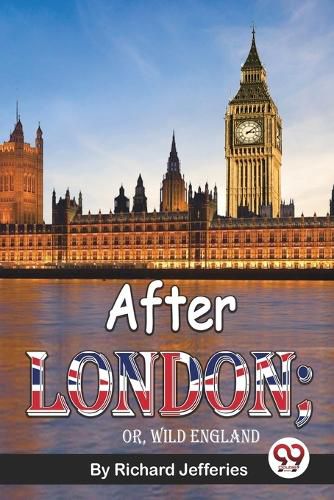Readings Newsletter
Become a Readings Member to make your shopping experience even easier.
Sign in or sign up for free!
You’re not far away from qualifying for FREE standard shipping within Australia
You’ve qualified for FREE standard shipping within Australia
The cart is loading…






This title is printed to order. This book may have been self-published. If so, we cannot guarantee the quality of the content. In the main most books will have gone through the editing process however some may not. We therefore suggest that you be aware of this before ordering this book. If in doubt check either the author or publisher’s details as we are unable to accept any returns unless they are faulty. Please contact us if you have any questions.
One could consider Jefferies' book to be a groundbreaking piece of post-apocalyptic literature. After a sudden, unexplained tragedy has killed out the majority of England's population, the countryside returns to its natural state, and those who are left choose a fairly archaic way of life. The first section, The Relapse into Barbarism, is a description of the loss of civilization and its consequences by some subsequent historians. It features a lovely depiction of how nature reclaimed England. The second chapter, named Wild England, is an adventure that takes place in a culture and environment that are both wild and takes place many years later. The book's flaws are more than made up for by the great writing, notably the unsettlingly prophetic descriptions of the post-apocalyptic city and countryside. was released by Cassell & Company in 1885. "Everything became green in the first spring after London ended." The novel After London by Richard Jefferies is considered a classic work of "eco-apocalyptic" literature. Jefferies was married in 1874 and relocated closer to London in 1877 while still writing to support his wife and two kids. Though he was both unwell and penniless, the years from 1882 until his death in 1887 were when he was most creative.
$9.00 standard shipping within Australia
FREE standard shipping within Australia for orders over $100.00
Express & International shipping calculated at checkout
This title is printed to order. This book may have been self-published. If so, we cannot guarantee the quality of the content. In the main most books will have gone through the editing process however some may not. We therefore suggest that you be aware of this before ordering this book. If in doubt check either the author or publisher’s details as we are unable to accept any returns unless they are faulty. Please contact us if you have any questions.
One could consider Jefferies' book to be a groundbreaking piece of post-apocalyptic literature. After a sudden, unexplained tragedy has killed out the majority of England's population, the countryside returns to its natural state, and those who are left choose a fairly archaic way of life. The first section, The Relapse into Barbarism, is a description of the loss of civilization and its consequences by some subsequent historians. It features a lovely depiction of how nature reclaimed England. The second chapter, named Wild England, is an adventure that takes place in a culture and environment that are both wild and takes place many years later. The book's flaws are more than made up for by the great writing, notably the unsettlingly prophetic descriptions of the post-apocalyptic city and countryside. was released by Cassell & Company in 1885. "Everything became green in the first spring after London ended." The novel After London by Richard Jefferies is considered a classic work of "eco-apocalyptic" literature. Jefferies was married in 1874 and relocated closer to London in 1877 while still writing to support his wife and two kids. Though he was both unwell and penniless, the years from 1882 until his death in 1887 were when he was most creative.